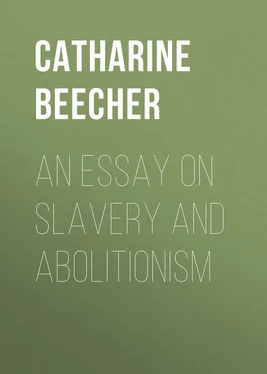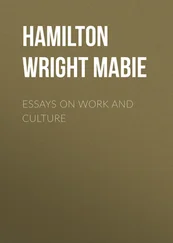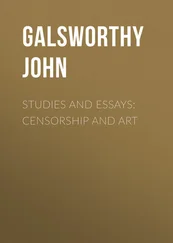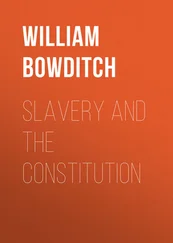Catharine Beecher - An Essay on Slavery and Abolitionism
Здесь есть возможность читать онлайн «Catharine Beecher - An Essay on Slavery and Abolitionism» — ознакомительный отрывок электронной книги совершенно бесплатно, а после прочтения отрывка купить полную версию. В некоторых случаях можно слушать аудио, скачать через торрент в формате fb2 и присутствует краткое содержание. Жанр: foreign_antique, foreign_prose, на английском языке. Описание произведения, (предисловие) а так же отзывы посетителей доступны на портале библиотеки ЛибКат.
- Название:An Essay on Slavery and Abolitionism
- Автор:
- Жанр:
- Год:неизвестен
- ISBN:нет данных
- Рейтинг книги:4 / 5. Голосов: 1
-
Избранное:Добавить в избранное
- Отзывы:
-
Ваша оценка:
- 80
- 1
- 2
- 3
- 4
- 5
An Essay on Slavery and Abolitionism: краткое содержание, описание и аннотация
Предлагаем к чтению аннотацию, описание, краткое содержание или предисловие (зависит от того, что написал сам автор книги «An Essay on Slavery and Abolitionism»). Если вы не нашли необходимую информацию о книге — напишите в комментариях, мы постараемся отыскать её.
An Essay on Slavery and Abolitionism — читать онлайн ознакомительный отрывок
Ниже представлен текст книги, разбитый по страницам. Система сохранения места последней прочитанной страницы, позволяет с удобством читать онлайн бесплатно книгу «An Essay on Slavery and Abolitionism», без необходимости каждый раз заново искать на чём Вы остановились. Поставьте закладку, и сможете в любой момент перейти на страницу, на которой закончили чтение.
Интервал:
Закладка:
This was the leader, both in and out of Parliament, of that body of men who combined to bring to an end slavery and the slave trade, in the dominions of Great Britain. With him, as principal leaders, were associated Clarkson, Sharpe, Macaulay, and others of a similar spirit. These men were all of them characterized by that mild, benevolent, peaceful, gentlemanly and forbearing spirit, which has been described as so conspicuous in Wilberforce. And when their measures are examined, it will be found that they were eminently mild, peaceful, and forbearing. Though no effort that is to encounter the selfish interests of men, can escape without odium and opposition, from those who are thwarted, and from all whom they can influence, these men carefully took those measures that were calculated to bring about their end with the least opposition and evil possible. They avoided prejudices, strove to conciliate opposers, shunned every thing that would give needless offence and exasperation, began slowly and cautiously, with points which could be the most easily carried, and advanced toward others only as public sentiment became more and more enlightened. They did not beard the lion in full face, by coming out as the first thing with the maxim, that all slavery ought and must be abandoned immediately. They began with "inquiries as to the impolicy of the slave trade ," and it was years before they came to the point of the abolition of slavery. And they carried their measures through, without producing warring parties among good men , who held common principles with themselves. As a general fact, the pious men of Great Britain acted harmoniously in this great effort.
Let us now look at the leaders of the Abolition movement in America. The man who first took the lead was William L. Garrison, who, though he professes a belief in the Christian religion, is an avowed opponent of most of its institutions. The character and spirit of this man have for years been exhibited in "the Liberator," of which he is the editor. That there is to be found in that paper, or in any thing else, any evidence of his possessing the peculiar traits of Wilberforce, not even his warmest admirers will maintain. How many of the opposite traits can be found, those can best judge who have read his paper. Gradually others joined themselves in the effort commenced by Garrison; but for a long time they consisted chiefly of men who would fall into one of these three classes; either good men who were so excited by a knowledge of the enormous evils of slavery, that any thing was considered better than entire inactivity, or else men accustomed to a contracted field of observation, and more qualified to judge of immediate results than of general tendencies, or else men of ardent and impulsive temperament, whose feelings are likely to take the lead, rather than their judgment.
There are no men who act more efficiently as the leaders of an enterprise than the editors of the periodicals that advocate and defend it. The editors of the Emancipator, the Friend of Man, the New York Evangelist, and the other abolition periodicals, may therefore be considered as among the chief leaders of the enterprise, and their papers are the mirror from which their spirit and character are reflected.
I wish the friends of these editors would cull from their papers all the indications they can find of the peculiarities that distinguished Wilberforce and his associates; all the evidence of "a modest and lowly spirit," – all the exhibitions of "charity in judging of the motives of those who oppose their measures," – all the "indications of benignity, gentleness, and kind-heartedness," – all the "kind constructions of doubtful actions," – all the "charitable language used toward those who differ in opinion or measures," – all the "thorough forgetfulness of little affronts," – all the cases where "opponents are allowed full credit for purity and sincerity of motive," – all cases where they have been careful "never to provoke an adversary," – all cases where they have "refrained from all irritating expressions," – all cases where they have avoided every thing that would "indispose their opponents for their great cause," and then compare the result with what may be found of an opposite character, and I think it would not be unsafe to infer that an association whose measures, on an exciting subject, were guided by such men, would be more likely to be aggressive than peaceful. The position I would establish will appear more clearly, by examining in detail some of the prominent measures which have been adopted by this association.
One of the first measures of Abolitionists was an attack on a benevolent society, originated and sustained by some of the most pious and devoted men of the age. It was imagined by Abolitionists, that the influence and measures of the Colonization Society tended to retard the abolition of slavery, and to perpetuate injurious prejudices against the coloured race. The peaceful and christian method of meeting this difficulty would have been, to collect all the evidence of this supposed hurtful tendency, and privately, and in a respectful and conciliating way, to have presented it to the attention of the wise and benevolent men, who were most interested in sustaining this institution. If this measure did not avail to convince them, then it would have been safe and justifiable to present to the public a temperate statement of facts, and of the deductions based on them, drawn up in a respectful and candid manner, with every charitable allowance which truth could warrant. Instead of this, when the attempt was first made to turn public opinion against the Colonization Society, I met one of the most influential supporters of that institution, just after he had had an interview with a leading Abolitionist. This gentleman was most remarkable for his urbanity, meekness, and benevolence, and his remark to me in reference to this interview, shows what was its nature. "I love truth and sound argument," said he, "but when a man comes at me with a sledge hammer, I cannot help dodging." This is a specimen of their private manner of dealing. In public, the enterprise was attacked as a plan for promoting the selfish interests and prejudices of the whites, at the expense of the coloured population; and in many cases, it was assumed that the conductors of this association were aware of this, and accessory to it. And the style in which the thing was done was at once offensive, inflammatory, and exasperating. Denunciation, sneers, and public rebuke, were bestowed indiscriminately upon the conductors of the enterprise, and of course they fell upon many sincere, upright, and conscientious men, whose feelings were harrowed by a sense of the injustice, the indecorum, and the unchristian treatment, they received. And when a temporary impression was made on the public mind, and its opponents supposed they had succeeded in crushing this society, the most public and triumphant exultation was not repressed. Compare this method of carrying a point, with that adopted by Wilberforce and his compeers, and I think you will allow that there was a way that was peaceful and christian, and that this was not the way which was chosen.
The next measure of Abolitionism was an attempt to remove the prejudices of the whites against the blacks, on account of natural peculiarities. Now, prejudice is an unreasonable and groundless dislike of persons or things. Of course, as it is unreasonable, it is the most difficult of all things to conquer, and the worst and most irritating method that could be attempted would be, to attack a man as guilty of sin, as unreasonable, as ungenerous, or as proud, for allowing a certain prejudice.
This is the sure way to produce anger, self-justification, and an increase of the strength of prejudice, against that which has caused him this rebuke and irritation.
Читать дальшеИнтервал:
Закладка:
Похожие книги на «An Essay on Slavery and Abolitionism»
Представляем Вашему вниманию похожие книги на «An Essay on Slavery and Abolitionism» списком для выбора. Мы отобрали схожую по названию и смыслу литературу в надежде предоставить читателям больше вариантов отыскать новые, интересные, ещё непрочитанные произведения.
Обсуждение, отзывы о книге «An Essay on Slavery and Abolitionism» и просто собственные мнения читателей. Оставьте ваши комментарии, напишите, что Вы думаете о произведении, его смысле или главных героях. Укажите что конкретно понравилось, а что нет, и почему Вы так считаете.












